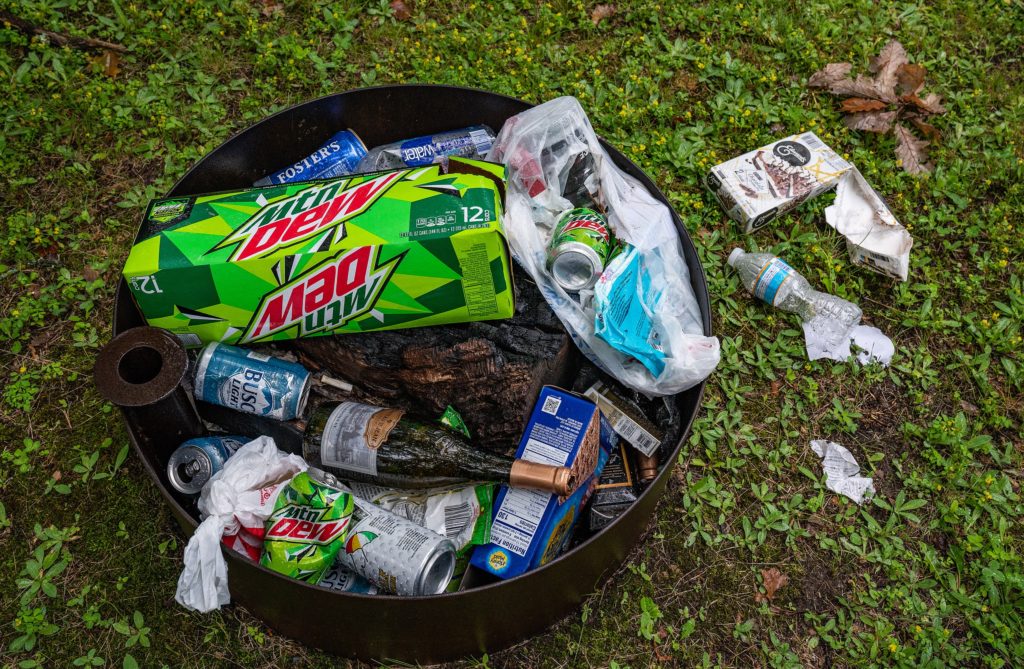By Janet Domenitz and Julia Blatt
We need to stop kicking the can down the road.
Since its passage nearly 40 years ago, the bottle bill has created a successful recycling program in Massachusetts. But time is catching up to the law, and it needs updating to deliver the best results.
A lot has changed in Massachusetts since the original bottle bill was established in 1983. First, our waste problem has worsened. According to the new Trash in America report released by MASSPIRG and other regional public interest groups, the average American throws out nearly 1,800 pounds of trash each year. That’s a massive increase from the 1,300 pounds of trash the average American discarded in 1980. And Massachusetts is not immune to this wastefulness. We produce nearly six million tons of waste in the Commonwealth annually. Most of this trash consists of goods used for a matter of minutes before throwing away — like beverage containers.
Second, the beverage market has changed dramatically. In 2015, the bottle bill kept over 1.2 billion beverage containers out of our trash, but 6 billion beverage containers were sold in Massachusetts that year. Most of those containers didn’t, and still don’t, have a deposit under the current law. That’s because many drinks on grocery shelves today — water bottles, sports drinks, iced teas, and more — did not exist when the law passed in 1982. These new containers litter our parks, clutter our waterways, and consume our landfills.
Finally, a nickel is not what it was in 1983. The incentive for consumers to redeem their beverage containers is not as much as it once was. The Commonwealth’s redemption rate peaked at 71% in 2010, but fell to 43% in 2020, the lowest of any bottle bill state. At the other end of that spectrum, states with the highest redemption rates, like Michigan, Oregon, and Maine, have 10-cent deposits and redemption rates of about 85%.
With these changes in Massachusetts over the past 40 years, it’s time for the bottle bill to catch up. When we and other advocates tried to update the law at the ballot box in 2014, the bottling and beverage industries spent more than $9 million dollars opposing the change, promising “better ways” to recycle. Ultimately the initiative was defeated. Since then, no promised “better way” has appeared, and recycling in Massachusetts has stalled.
Meanwhile, new container deposit laws have been enacted for more than 350 million people around the country and the world, and laws have been modernized with great success. When Oregon updated their bottle bill in 2017 to include more types of beverage containers and a 10¢ deposit, the redemption rate jumped from 64% to 86% over two years. Likewise, since updating their extensive container deposit law in 1990, Michigan has seen the redemption rate rise to 89% and their total waste stream reduced by 6% to 8% each year.
In response to growing piles of litter and waste, State Representative Marjorie Decker and State Senator Cynthia Creem have filed an updated bottle bill (H3289/S2149) which will cover nips, water bottles, and more container sizes and types of beverages, and increase the deposit from 5 cents to 10 cents. With this bigger, better bottle bill, we could more effectively clean up our roadsides, reduce plastic in our rivers and waterways, and stop burying or burning our beverage containers in landfills and incinerators.
As with any big problem, there’s no one silver bullet. Updating the bottle bill is one of many steps we must take to move away from our throwaway, single-use culture. The facts show that deposits on containers reduce waste and litter, and improve our communities. But an updated bottle bill doesn’t need to start from scratch, or build anything new. We just need to double down on what already works: the tried-and-true recycling success of the bottle bill.
Janet Domenitz is executive director of MASSPIRG. Julia Blatt is executive director of the Massachusetts River Alliance.



Sorry, the comment form is closed at this time.